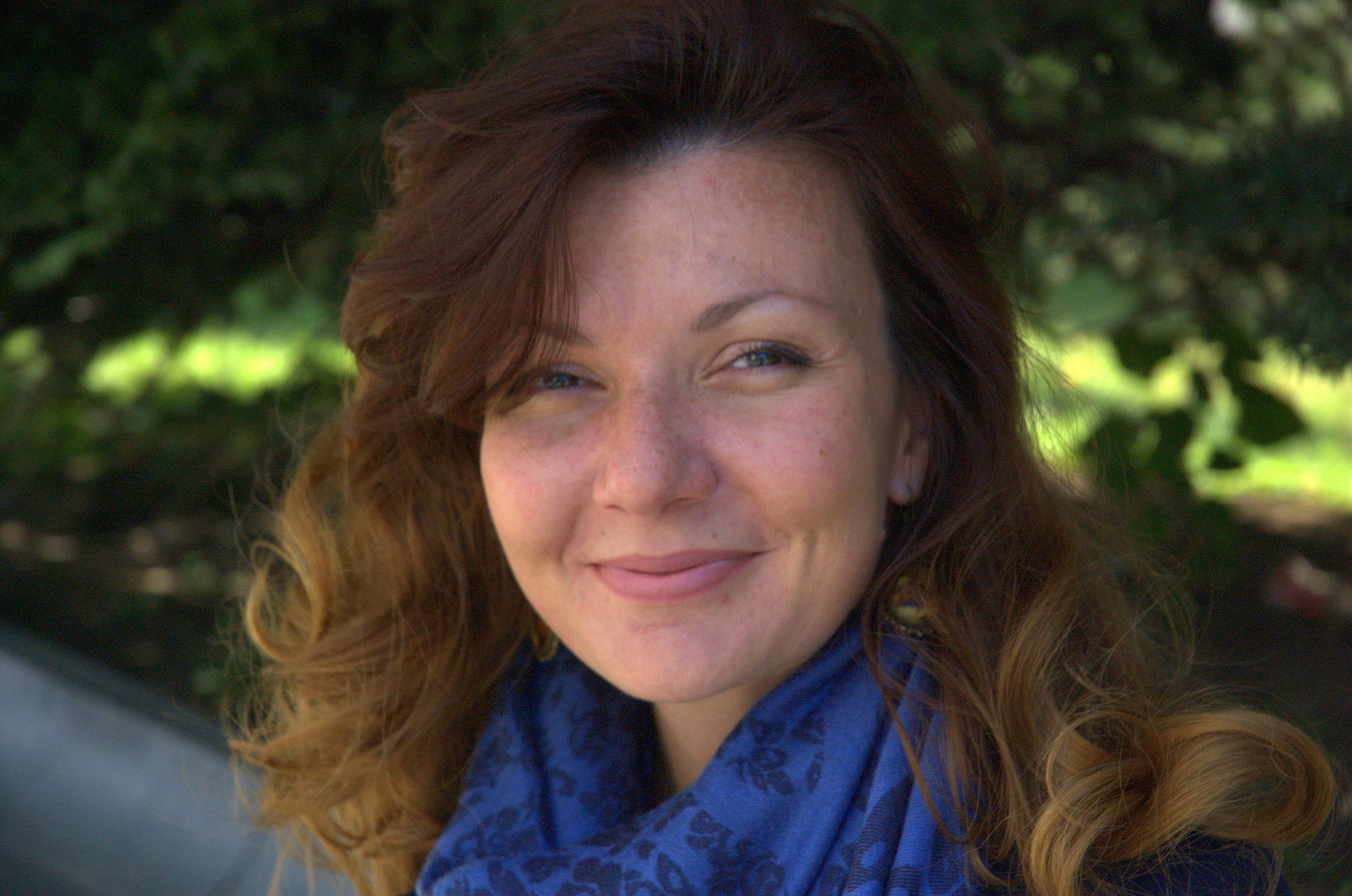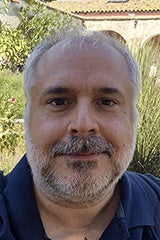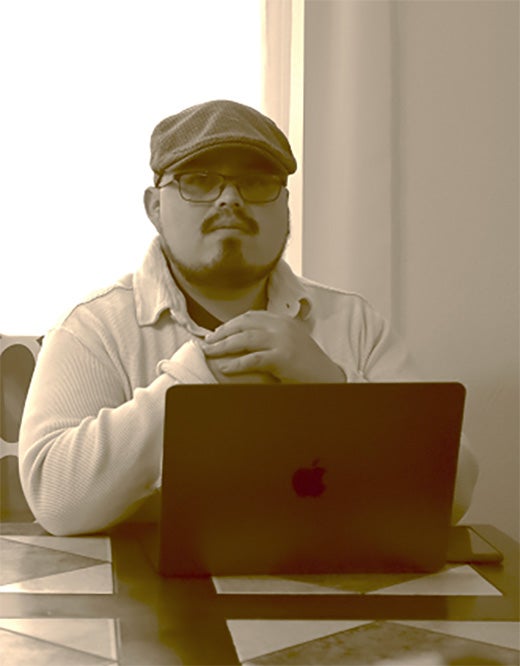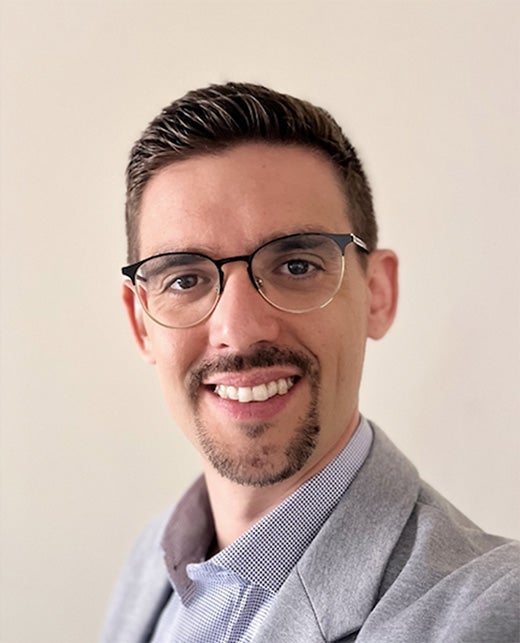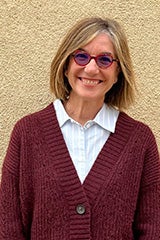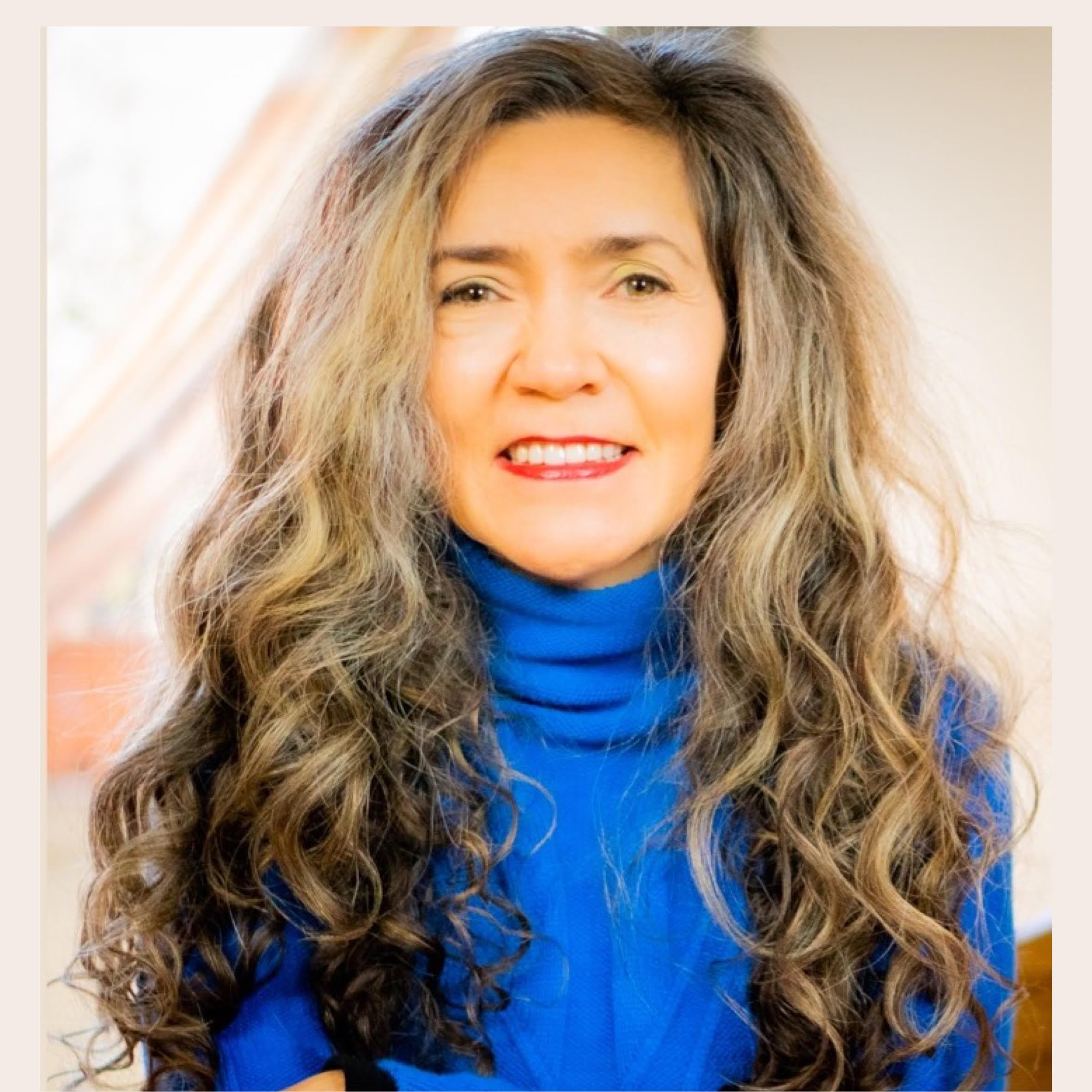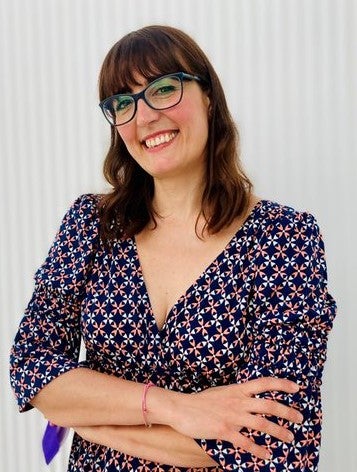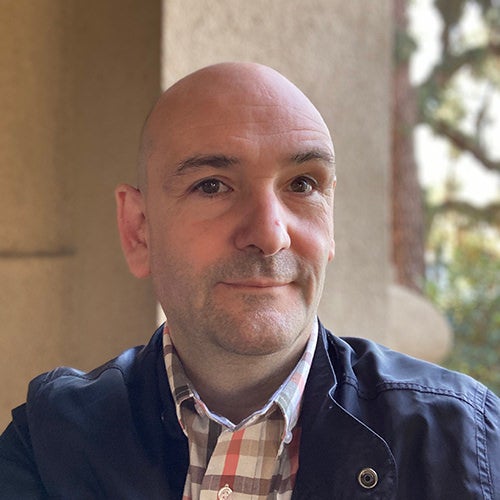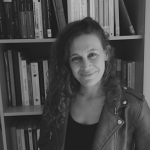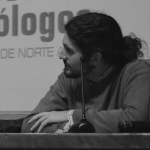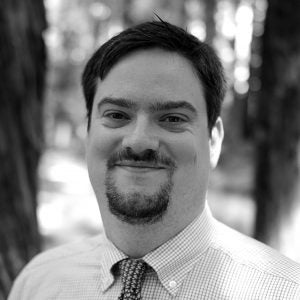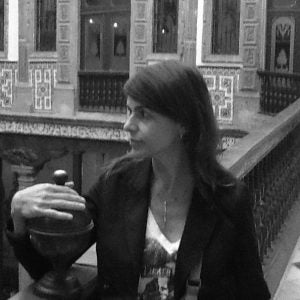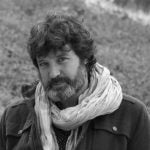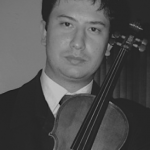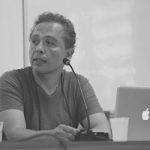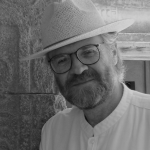
Visiting Scholars
-
2026
Dr. Ivana Petković Lozo
Dr. Ivana Petković Lozo is a musicologist whose research focuses on European fin-de-siècle music, the interplay between music, literature, and the visual arts, as well as the philosophical and aesthetic foundations of musical experience. She earned her PhD from the Faculty of Music at the University of Arts in Belgrade, where she taught for fifteen years as an Assistant Professor of Musicology. Also contributed to the Interdisciplinary Studies program at the University of Arts in Belgrade.
She has published widely in national and international journals, monographs, and edited volumes. She is the author of The Late Oeuvre of Claude Debussy: “Truths” about the French Myth (2011) and co-author of Stevan Stojanović Mokranjac in the Writings of “Others” (2014).
Her teaching portfolio spans undergraduate and graduate courses on Western music history, fin-de-siècle Serbian music, aesthetics, contemporary musical poetics, synesthesia, and interdisciplinary approaches to music. She initiated the master’s program Artistic Synesthesia: Theory and Practice at the University of Arts and has supervised numerous student research projects, master’s theses, doctoral artistic projects, and cross-disciplinary studies. She has also participated in international research initiatives at the Institut für Musikwissenschaft, University of Vienna, and through the Erasmus+ program at the Lithuanian Academy of Music and Theatre.
As a project leader and co-investigator, she has demonstrated strong expertise in grant writing, research management, and interdisciplinary coordination, contributing to projects supported by academic institutions, government agencies, international foundations, and university research councils.
She is currently a Visiting Scholar in the Department of Music at the University of California, Riverside, US, and an active member of the International Musicological Society (IMS), American Musicological Society (AMS), the Modernist Studies Association (MSA), the International Association for Semiotic Studies (IASS), The Society for Electro-Acoustic Music in the United States (SEAMUS), the College Music Society (CMS), the Serbian Musicological Society (SMS), and the Music Writers’ Chapter of the Composers’ Association of Serbia.
-
2025
Yiwen Chen (Yvette)
Yiwen Chen is currently a doctoral student in Music Education at Hunan Normal University, China, specializing in music higher education. She holds a Master degree from the University of Manchester, UK, where her master's thesis explored ornamentation techniques in Purcell's harpsichord suites. She also possesses a Master degree in Piano Performance and dual Bachelor's degrees in Piano Performance and English Literature from Hunan Normal University.
Her research integrates Western and Chinese traditions, with publications in Modern Music, Culture Life, and other journals. She has contributed to national and provincial projects on Chinese musical heritage and music education reform. Her scholarly focus includes historical performance practice, cross-cultural pedagogy, and contemporary approaches to piano music interpretation.
Chen has trained under distinguished scholars and musicians, including Professors Walter Clark, Barry Cooper, Yongsheng Kuang, and Rebecca Herissone. Her current research examines the promotion and pedagogy of Spanish-themed piano works within higher music education, while also pursuing comparative studies of music education systems in China and the United States.
Luis López Ruiz
Luis López Ruiz is an Assistant Professor in the Department of Musicology at the Complutense University of Madrid (Spain). He holds a PhD in Musicology from the Complutense University of Madrid and the University of Valladolid. His dissertation, ‘El compositor José Lidón (1748-1827): obra teórica y análisis de su música litúrgica / The composer José Lidón (1748-1827): theoretical work and analysis of his liturgical music’, directed by Dr. Javier Suárez-Pajares, was awarded ex aequo with the 2018 Musicology Prize, Doctoral Thesis modality, of the Spanish Society of Musicology.
His research focuses on Spanish sacred and theatrical vocal music from the late 18th century and the early 19th century, with special attention to the analysis of the repertoire and its recovery for subsequent performing. In relation to this last activity, he has collaborated with the Instituto Complutense de Ciencias Musicales (ICCMU) in the recovery of 18th-century Spanish music. He has published works on the composer José Lidón and Hispanic sacred music from the period (see https://orcid.org/0000-0003-3040-2847). In 2019 he won First Prize in the Otto Mayer-Serra Award competition from the University of California, Riverside, and its Center for Iberian and Latin American Music (CILAM) for his paper "Un modelo analítico para la música vocal religiosa hispana: Estructura y expresión en el Te Deum (1814) de José Lidón / An analytical model for Hispanic religious vocal music: Structure and expression in José Lidón Te Deum (1814)" (Diagonal: An Ibero-American Music Review 4, no. 2, 2019: 90-120). He is a member of the research group "UCM 941062 – Spanish Music (19th-21st Centuries)" and of the Working Committee "Musical Analysis: Sounds, (Con)texts, Cultures" of the Spanish Society of Musicology.
During the summer of 2025, he has been conducting research on music from the California Missions, thanks to a Complutense del Amo grant, with a particular interest in the religious repertoire in Spanish found in various preserved sources.
-
2024
Laura Cecilio (she/her)
Laura Cecilio is a Brazilian Performer and PhD student from the Communication and Semiotics Program at the Catholic Pontifical University of Sao Paulo (PUC-SP). She is a visiting scholar at the University of California, Riverside in the Music Department, under the guidance of professor Dr. Walter Clark. Cecilio has been awarded a CAPES Foundation scholarship to research her doctoral investigation, titled "Networks of Resistance and their Micro-political Narratives," initiated in 2021, and endeavors to illuminate the expressive potential of queer existence through fictional narratives interwoven with performative arts, primarily encompassing Brazilian music, dance, and literary forms. She is keen on delving into the potential of collaboratively constructed creative processes. As a manifestation of this interest, she conceived the musical noise project "Ficções" as a live exercise in the fabulation process.
Cecilio is also a performer/singer in different projects such as “Soturna” (Burlesque Jazz music) “Manati Peixe-Banda” (Brazilian Progressive Psychedelic music) and “A Drama” (Nova Música Popular Brasileira).
CV
lauramcecilio@gmail.com / lcecilio@ucr.eduLadislao Ceja Fernández
Ladislao Ceja Fernández earned his degree in cello at the Veracruz Institute of Music. He completed his master's degree at the University of Sciences and Arts of Chiapas with research in the indigenous community of Chamula, Chiapas, on the importance of festivities such as the local carnival in the construction of hybrid cultural identities. Currently, he is pursuing his Ph.D. in Musicology at the University of Oviedo, Spain, writing a thesis that investigates the main music festivals of the second half of the 20th century in his hometown of Morelia, Michoacán (UNESCO Cultural Heritage since 1991).
Dra. Inmaculada Matía Polo
Vice Dean of International, Institutional Relations and Library of the Faculty of Geography and History (UCM) and Professor of Musicology at the Complutense University of Madrid.
Professor in the Department of Musicology of the Faculty of Geography and History (UCM), she has taught at different Spanish and international universities, highlighted by her connection with the Federal University of Ceará (UFCA, Brazil) since 2012. Between 2011 and 2016, she was a member of the Board of Directors of the Sociedad Española de Musicología and, within this space, she is a founding member of the working groups Musical Archaeology, Music and Press, and Music and Performing Arts, a commission that she chairs. She has participated in a hundred conferences, collaborated in international projects linked to dance and the popular scene, and is the author of more than 40 articles and book chapters, inserted in high-impact magazines and editorials, as well as six books published under her editorial coordination. Among these texts, the book José Inzenga: la diversidad de acción de un músico español en el siglo XIX (SEdeM, 2010) stands out, derived from her candidacy for the 2009 Annual Musicology Prize, as well as, more recently, the monographs Copla, ideología y poder (Dykinson, 2020), Entre copla y flamenco(s): Escenas, diálogos e intercambios (Dykinson, 2021), Detrás de la imagen: cine, canción y baile en España (1931-1939) (Ediciones Complutense, 2021) , América como horizonte: intercambios, diálogos y mestizajes de la escena popular española (Iberoamericana-Vervuet, 2023) o Cuplé y canción española. Escenarios de representación (Dykinson, 2024). Since 2022, she has been Vice Dean of International and Institutional Relations and Library of the Faculty of Geography and History (UCM).
In her work as a Visiting Professor at the University of California, Riverside, she has reviewed documentation linked to the image of Spanish in the United States and Latin America, particularly referring to the actions carried out by Encarnación López Júlvez's companies “La Argentinita” and Tórtola Valencia on the stages of the city of Los Angeles during the first half of the 20th century. Likewise, she has had the opportunity to analyze the collaboration of the dancer José Greco with the film industry, through the films Around the World in Eighty Days (1956), Holiday for Lovers (1959), Ship of fools (1965), and The Proud and Damned (1972).
Daniel Martín Sáez
Daniel Martín Sáez is professor of the Degree in History and Sciences of Music and the Master in Hispanic Music at the University of Salamanca. His lines of research are characterized by a multidisciplinary approach, which aims to open new lines of research in musicology by integrating it with disciplines such as philosophy, history of poetics, aesthetics, the history of theology, history of law, history of the press, gender studies, and the history of science, while paying special attention to the history of ideas and geopolitical problems. He is currently collaborating with several projects and research groups and is developing a line of research on the theological, legal, and medical debates surrounding the castration of singers, the first result of which was the article "El jurista Giulio Capone, el cantante Ottavio Gaudioso y la defensa filosófica de la castración con fines musicales" (2022). That same year he published his article "Si las mujeres mandasen. Zarzuela, prensa y feminismo en España en la primera mitad del siglo XX" (2022).
A part of his studies is focused on the history of opera and the philosophy of contemporary music, which he has combined with teaching appointments in musicology, philosophy, and history at various universities, including the Autonomous University of Madrid, the University of Granada, and the University of Oviedo, as well as the University of Salamanca. He has also carried out research stays at Princeton University and the University of Ferrara, and he has been a visiting professor at the University of Padua and the Complutense University of Madrid, among others.
This diversity of interests has its origin in his early university education. After graduating in philosophy and musicology, he defended his doctoral thesis at the Autonomous University of Madrid on the birth of opera, in which he addressed the connection of opera with the political, religious, and academic history of the early-modern era. His publications in this field include the chapter "Galileo and Opera: Music, Science, Politics and Religion in the 17th Century" in the book Music and Science from Leonardo to Galileo (Brepols, Turnhout, 2022), edited by Rudolf Rasch, which analyzes a dozen operas connected with the Galileo affair, coinciding in time with his great cosmological discoveries, his disputes with the Jesuits about comets, and the inquisitorial process that ended up condemning him to house arrest. His articles on the metaphor of the theatrum mundi, on the history of Italian opera in Poland, on the genealogy of the concept of Baroque, and on the librettist Gabriello Chiabrera also stand out in this field. Research such as this earned him a fellowship from the Society for Seventeenth-Century Music in 2018.
He has also devoted special attention to the figure of the castrated singer Carlo Broschi Farinelli, to whom he has dedicated several articles and lectures at numerous international congresses. His publications include "La leyenda de Farinelli en España: Historiografía, mitología y política" (2018), which received the I Premio de la Sociedad Española de Estudios del Siglo XVIII, and "La apoteosis de Farinelli en España. El mito de la superestrella a través de la prensa británica del siglo XVIII" (2019), which received the Otto Mayer Serra Award from the Center for Iberian and Latin American Music at UCR. He has subsequently published other articles, such as "La amistad entre Carlo Broschi Farinelli y el marqués de la Ensenada a través de la diplomacia europea, la iconografía, la propaganda, la historia y la literatura" (2020) and "Calendario festivo, fuentes y artistas de las óperas y serenatas organizadas por Farinelli para la corte de Fernando VI y Bárbara de Braganza" (2021). On melodramatic poetics, his articles "La poética melodramática del Seicento: más allá del mito de la camerata del conde Bardi" (2021) and "El lugar de la ópera en la poética de Ignacio de Luzán: entre la tragedia y las artes liberales" (2022) stand out.
In addition, he has published an article on the history of the term opera, entitled "Origins and Consolidation of the Term 'Opera.' From Italy to Germany, England, France and Spain" (2022), and another on the historiographical treatment of the birth of opera, entitled "Estética, musicología y secularización: el mito del nacimiento de la ópera en la historiografía del último siglo" (2020). On contemporary music philosophy, his latest article is "The Expression 'Philosophy of Music'. A Brief History and Some Philosophical Considerations" (2021), in which e he analyzes the historical origin of the philosophy of music and criticizes some of its philosophical-musical presuppositions.
In other articles he has criticized the musical ideas of authors such as Theodor Adorno and Peter Kivy, as in his article "La idea de ópera de Peter Kivy. El caballo de Troya del formalismo" (2019) and in "La crisis de la ópera en la obra de Theodor Adorno. Historia y crítica de un tópico infundado" (2021). He has also stood out for his work as editor and translator, including his edition, translation, and foreword to James O. Young's book Filosofía de la música. Respuestas a Peter Kivy (2017), and the co-translation of Eva Brann's The Music of the Republic (2015). In addition, since 2006 he has edited more than forty-five issues of Sinfonía Virtual. Revista de Música, and has been a reviewer for numerous impact journals in music, philosophy, and history.
-
2022
Dra. María-Teresa Ferrer Ballester (Barcelona, 1967).
Visiting Scholar - University of California
Professor - Valencian International UniversityShe holds a degree in musicology from the University of Oviedo and a PhD in Musicology from the University of Valladolid, where she wrote her thesis on Antonio Teodoro Ortells (1647-1706): estudio biográfico y estilístico de su obra. This work received the qualification of Sobresaliente cum laude and Extraordinary Doctorate Award from the Faculty of Philosophy and Letters. She also studied piano at the Valencia Conservatory of Music.
Her teaching experience has been extensive: University of Valladolid (1996-2007); Catholic University of Valencia (2007-2009) and Valencian International University (2010 to present), where she has directed the University Master's Degree in Music Performance and Research and has held the positions of Vice-Rector for Academic Planning and Teaching Staff (2016-2017); Acting Rector (2017); and Director of the Area of Arts, Humanities and Communication (2018-2020). She is currently Full Professor in the Faculty of Arts, Humanities and Communication (Degree in Musicology and Master's Degree in Music Performance and Research). During the academic year 2015-16, she taught at the Conservatory of Music of the Liceo de Barcelona.
Her research activity is focused on Spanish Baroque vocal music (17th and 18th centuries), especially on the Spanish musical oratorio of the 18th century, a subject in which she specialized since she discovered an unpublished corpus of musical sources of seven oratorios dated between 1702 and 1730 in the congregation of the oratory of Palma de Mallorca. This discovery was a milestone in the understanding and study of the genre since it allowed, among other things, to reveal the chronology of its practice in Spain and to identify the musical features of this genre. The results were published mainly in the Revista de Musicología and The New Grove Dictionary of Music and Musicians, among others.
Of special importance were her stays at the Accademia Spagnola di Storia, Archeologia e Belle Arti in Rome and at the University of North Carolina (Chapel Hill), which were made possible by scholarships from the Ministry of Foreign Affairs and the University of Valladolid, respectively. These allowed her to deepen her knowledge of the genre, studying its links with the Italian oratorio—a subject she deals with in the article Italia-España en la historia del oratorio musical (1645-1730): ¿parallelism or influence?—and deepening her musical analysis thanks to the tutoring of the specialist Howard Smither (University of North Carolina). The results are collected in her monograph Antonio T. Ortells y su legado en la música barroca española.
Currently, thanks to the BEST scholarship program of the Conselleria de Innovación, Universidades, Ciencia y Sociedad Digital and the UC Riverside’s Center for Iberian and Latin American Music, directed by Walter Clark, she is conducting she is conducting research that opens new connections between the Spanish musical oratorio and the musical practice of the oratorian congregations and other religious institutions based in New Spain.
She has participated in and directed research projects that have focused on the oratorio, e.g., El Oratorio en España: génesis, desarrollo y tipología del género en el siglo XVIII; La actividad poético-musical en el seno de la Congregación de san Felipe Neri durante los siglos XVII-XVIII, among many others. These have been undertaken in collaboration with the Universidad Complutense de Madrid, the Universidad Autónoma de Barcelona, and the Consejo Superior de Investigaciones Científicas (CSIC).
Her musicology career is reaching completion with work on the interpretation of early music by renowned performers (Carlos Magraner, Josep Cabré, Andrew Lawrence-King), who play a crucial role in the recovery and dissemination of these oratorios. They have been featured in such prominent events as La Semana de Música Religiosa de Cuenca (Oratorio a la Pasión by A.T. Ortells and La gloria de los santos by P. Rabassa) and Pórtico do Paraiso (Oratorio al Nacimiento by P.M. de Orgambide), among others.
She has been a member of the Editorial Board of the Revista Anuario Musical (CSIC) and Member of Number of the Muy Ilustre Academia de la Música Valenciana, having been part of its Board of Governors from 2014 to 2019.
Ana Benavides
Originally from Malaga, Ana has completed studies in Madrid, Vienna, and Barcelona, with Manuel Carra or Alicia de Larrocha as teachers. She holds a Ph.D. in Arts from the Universidad Carlos III de Madrid with an Extraordinary Doctorate Prize. Ana Benavides was a scholar-in-residence at the University of California in Riverside in 2014/2015, invited by Prof. Walter Clark. The main focus of her research was the Spanish piano and its relation to folk Spanish music. Currently, she is a professor at the Universidad Carlos III and Distinguished Professor at the Real Conservatorio Superior de Música de Madrid (Spain).
Ana Benavides has performed recitals throughout Europe, Australia, and North and South America and is also a regular visitor to international festivals as both a soloist and chamber musician. She also maintains an active interest in the Spanish piano repertoire of the 19th century and is often invited to give lectures, courses, and concerts on this topic at leading music schools and festivals (Juilliard School of Music, University of Texas, University of Southern California, Lancaster International Piano Festival, University of Melbourne, and the University of Adelaide, among others).
Award-winner of national and international competitions, Ana has recorded and published previously unpublished piano works from 19th century Spain. Her collection Piano inédito español del siglo XIX was awarded the Prize for the Best Musical Publication for Music by the Academy of Music and the SGAE (Spanish Association of Authors’ Rights). Moreover, she co-edited (with Walter Aaron Clark) and contributed to the catalog of the exhibition El paisaje acústico de Joaquín Rodrigo, organized by the Biblioteca Nacional de España in Madrid for the twentieth anniversary of the composer’s death (May-September 2019).
Books and scores: Piano inédito español del siglo XIX (vol. I and II, ed. Piles); Eduardo Ocón. Obra completa para piano (Bassus Ediciones); El piano en España (English, Russian and Spanish versions); Maestros del piano español del siglo XIX (Bassus Ediciones); Gerardo Diego y la música (Universidad de Cantabria); Joaquín Turina regresa al Turina (Conservatorio Profesional de Música Joaquín Turina de Madrid). Moreover, she has co-edited (with Prof. Walter Clark) and contributed to the catalogue of the exhibition El paisaje acústico de Joaquín Rodrigo, organized by the Biblioteca Nacional de España in Madrid for the twentieth anniversary of the composer’s death, May-September 2019. Músicas de barro y marfil (Arguval, 2019) and El piano. Instrumento, historia y protagonistas (Bassus, 2022) constitutes her last research endeavors.
CDs:
- Música española para piano, ed. Anacrusi, Barcelona, 1999.
- Dúo Rubens, Zenobia Sounds, Madrid, 2002.
- Piano inédito español del siglo XIX (vol. I), 2 cds, Anacrusi, Barcelona, 2006.
- Piano inédito español del siglo XIX (vol. II), 2 cds, Anacrusi, Barcelona, 2007.
- El clarinete romántico español (vol. I), Anacrusi, Barcelona, 2007.
- Eduardo Ocón. Obra completa para piano, Anacrusi, Barcelona, 2007.
- Bartolomé Pérez Casas. Obra completa para clarinete y piano, Anacrusi, Barcelona, 2007.
- El clarinete romántico español (vol. II), Bassus Ediciones Madrid, 2008.
- Piano inédito español del siglo XIX (vol. III), 2 cds, Bassus Ediciones, Madrid, 2008.
- Piano inédito español del siglo XIX (vol. IV), 2 cds, Bassus Ediciones, Madrid, 2009.
- El Clarinete en torno a la Generación del 27, Bassus Ediciones, Madrid, 2009.
- Piano inédito español del siglo XIX (vol. V), Bassus Ediciones, Madrid, 2010.
- El clarinete romántico español. (vol. III), Bassus Ediciones Discográficas (Madrid, 2010).
- Piano inédito español del siglo XIX (vol. VI), Bassus Ediciones, Madrid, 2011.
- Nicolás Ledesma. Piano Work. Bassus Ediciones, Madrid, 2012.
- Diálogos concertados. Obras para piano de José Luis Turina y Manuel Carra. Bassus Ediciones Discográficas (Madrid, 2021)
Patricia Caicedo
Patricia Caicedo is a soprano and musicologist whose scholarship and performances center around Latin American and Iberian art songs. She has released eleven albums and published numerous scholarly editions of scores, academic articles, and books, including The Latin American Art Song: Sounds of the Imagined Nations, the go-to history on its subject. She is also an avid performer of these works, having performed around the world in addition to founding and directing the Barcelona Festival of Song, which focuses on the performance and study of Latin American and Iberian art songs in Spanish, Catalan, and Portuguese. A multifaceted artist-scholar, Patricia has created and managed several interdisciplinary projects. Her academic interests include National Identity, De-Colonial thought, Performance Practice, 4E Cognition, and the intersection of music and technology. She is the host of the podcast Latin American and Iberian Art Song, in which she interviews composers and leading experts from across the world. She is frequently invited as a guest scholar and artist at US universities, where she presents lectures, masterclasses, and concerts. Patricia holds a Ph.D. in musicology from the Universidad Complutense de Madrid and a Medical Doctor’s degree from the Escuela Colombiana de Medicina. Further information about Patricia at her website Patriciacaicedo.com | Listen to Patricia’s recordings on Spotify.
Laura Miranda
Laura Miranda is a lecturer in the Department of Art History and Musicology at the University of Oviedo (Spain). Her research focuses on Spanish film music and its dialogues with America. She has published Canciones en el cine español de autarquía (Shangrilá, 2018). She is currently working on her new monograph, Spanish Film Music, 1939-1950: Music and Image in the Autarkic Period (Routledge) and serves as editor for the Routledge Handbook to Spanish Film Music (forthcoming). She has undertaken research stays at the University of Liverpool (FPI Predoctoral Research Fellow, 2009), at the University of Buenos Aires (Santander Iberoamérica Visiting Scholar, 2015) and at the University of California Riverside (Fulbright Visiting Scholar, 2021). She also co-directs the International Conference on Cinema and Identities, CICI, held every two years in Oviedo.
Belén Vega Pichaco
Lecturer in Musicology at the University of La Rioja (Spain). Author of several publications on Ideology, Music Criticism, Dance and Identity regarding Cuban and Latin-America Art Music, and co-editor of three volumes on Music and Dance in 20thCentury Spain and America (Dance, Ideology and Power in Francoist Spain, 1938-1968, Brepols 2017; Puentes sonoros y coreográficos durante el franquismo: imaginarios, intercambios y propaganda en clave internacional, Libargo 2019; and En, desde y hacia las Américas: migraciones transoceánicas, Dykinson, 2021). She has done research work in Cuba (2010), the United States (2011, 2014), Switzerland (2014-2015), France (2016), and more recently at Harvard University (2017) on the project «Dance, Identity and Politics: the Claim for Afro-Cubanity through the first Revolutionary Decade (1959-1969)». A member of the IMS-ARLAC and a Secretary of the Study Group “Music and (Latin)American Studies” (MUSAM) of the Spanish Musicological Society, she has recently published the book Ni la lira, ni el bongó… La construcción de la Música Nueva en Cuba desde la órbita de Musicalia(Comares, 2021). While at UCR (February – May 2022), she conducted original research on the Cuban American composer Aurelio de la Vega, about whom she is now writing a book. Further information on her is available at Vega-Pichaco’s Academia.edu profile.
Pedro Rubio
Pedro Rubio was appointed as professor of the Real Conservatorio Superior de Musica of Madrid in 2010. He has performed solo and chamber music recitals throughout Europe and North America. Mr. Rubio has performed with the Barcelona Symphony Orchestra, the Malaga Symphony, and numerous other orchestras throughout Spain. He received performance degrees from the Murcia and Málaga Superior Conservatories, the Royal School of Music of London (clarinet), the Granollers Conservatory in Barcelona (classical clarinet), and the Rotterdam Superior Conservatory in The Netherlands (bass clarinet). Mr. Rubio has been co-Artistic Director of the International Clarinet Association Convention, ClarinetFest® 2015, held in Madrid, Spain. Since 1991 he has been performing with the pianist Ana Benavides. As a duo, they have received prizes in numerous international chamber music competitions and have participated in various national and international festivals. To date, they have recorded seven Cds.
Mr. Rubio has written several articles about the clarinet in music magazines like The Clarinet (USA), Clarinet and Saxophone (UK), rohrblatt (Germany), Música (Spain), Diapason (Spain), Viento (Spain), ADEC Magazine (Spain), Resonancias (Chile) and The Galpin Journal (UK). For clarinet he has written or edited the following methods: El clarinete, vol. I and II, Colección primeros pasos, Madrid, ed. Real Musical (2011); Método completo para clarinete by Antonio Romero. New revised edition. UME, London (2016). For bass clarinet, he has designed a set of 101 studies in four volumes for the publishing Musica Didactica, Madrid (2005). In 2007 Pedro Rubio founded the publishing house Bassus Ediciones in Madrid, www.bassusediciones.com, whose principal objective is the restoration and retrieval of the Spanish repertoire of the 19th century and the publication of works and didactic material for the clarinet and the bass clarinet. Currently, more than thirty unknown clarinet pieces by Spanish composers of the 19th and beginning of the 20th century have been published.
-
2020
Riccardo La Spina (doctoral student, Universidad de La Rioja (Logroño), summer 2020 to spring 2022) researches nineteenth-century music and enjoys membership in international study groups, presenting for distinguished scholarly societies (Società Italiana di Musicologia; Society for Musicology in Ireland; American Musicological Society; IRCTP, Tbilisi; etc). He received research awards (UK), visiting scholarships (the ICCMU and UCM, Visiting scholar 2002-2003).(Mexico, Spain, Italy), and the AMS’ 2014 Hampson Fund Award for Research in Song (Antonio Barili). Published contributions include Grove, RILM, journals (Diagonal, PMM, Nineteenth-Century Musical Review, Studies in Musical Theatre), reviews, and articles pending. A concertizing tenor-soloist and composer, Riccardo also performs the ethnic song, playing accordion and Georgian panduri. He is currently in residence as Visiting Scholar at the Center for Iberian and Latin American Music, University of California, Riverside, and is a doctoral candidate in Musicology at the Universidad de La Rioja. -
2019
Olimpia García López (Cadiz, Spain) is a PhD Candidate in Contemporary History, and Research and Teaching Fellow (FPU-Ministry of Education, Culture, and Sports of Spain), writing a dissertation about Music in Seville during the Dictatorship of Primo de Rivera (1923-1930), at the University of Cádiz. She began her studies of Piano at the Conservatory “Manuel de Falla” in Cádiz and holds a BA in Musicology from the Conservatory of Seville “Manuel Castillo,” an MA in Music Education and an MA in Musical Heritage from the University of Granada. In 2012, she was awarded the Musical Research Prize “Orfeón Donostiarra” (University of Basque Country). She is author of Norberto Almandoz (1893-1970), de norte a sur. Historia de un músico en Sevilla (Libargo, 2015), and she has written several papers and book chapters about musical life in Seville during the first half of the twentieth century. Diego García-Peinazo is Lecturer in Music at the Universidad de Córdoba (Spain). He is a musicologist and music educator interested in areas such as popular-music analysis, intertextuality, rock flamenco, politics and national identity in Spain who holds his Ph.D. in Musicology (with distinction) in 2016 from the Universidad de Oviedo (Spain). His book Rock andaluz: Significación Musical, Identidades e Ideología en la España del tardofranquismo y la Transición (1969-1982) has been awarded the national Premio de Musicología 2016 (Sociedad Española de Musicología-SEdeM). He has published several journal articles and book chapters for publishers such as DeGruyter or Centro de Estudios Andaluces, among others, participated with oral presentations in conferences in the United Kingdom, Germany, Brazil, Portugal, and Spain, and was selected to take part in the International Postgraduate Summer School Methods of Popular Music Analysis (Universität Osnabruck, Germany, 2015). Andrea Garcia Torres is a Ph.D. student at the University of Oviedo (Spain), funded by an FPI fellowship from the Ministry of Economy, under the supervision of María Encina Cortizo. Her research interests include Spanish music from the 19th and 20th centuries, musical theater, especially opera and zarzuela, and their process of transculturation within Hispanic culture, music, and gender. She earned her Bachelor’s degree in Musicology in the University of La Rioja (2015), and her Music Performance Degree in viola at the Eduardo Martinez Torner Conservatoire (2011). She also has two Master Degrees: in Research on Musical Heritage (University of Oviedo, 2012) and in Teaching in Secondary School (Valencian International University, 2016). Her most significant publications include “El gorro frigio: dramaturgical stereotypes, scenic renovation, and diffusion circles in a sainete by Manuel Nieto” in the journal Cuadernos de Música Iberoamericana (ICCMU 2015); “Franz von Suppé in Spain: reception of his lyric plays in the Viennese operetta tradition” in Opera, drama lírico y zarzuela grande entre 1868 y 1925, Mª Pilar Espin Templado (ed.) (UNED 2016), and “Lyric theatre as a diffuser of the dominant ideologies around the War of Africa (1859-1860),” in Anuario Musical (CSIC 2017). As part of her studies, she teaches various undergraduate and public courses including the subjects of opera, zarzuela, music, and gender in the Department of Musicology and the Department of Teaching at the University of Oviedo. Andrea has presented papers at the Annual Congress of the Italian Musicology Society, Spanish Society for Literary Study of Popular Culture, and several conferences of the Centro Studi Opera Omnia Luigi Boccherini. Additionally, she writes for the regional newspaper La Nueva España about musical life in Oviedo, including performance critics and interviews. -
2018
Michael Accinno is a musicologist who specializes in disability studies and nineteenth-century U.S. music. He earned his Ph.D. at the University of California, Davis in 2016, under the supervision of Carol A. Hess. His dissertation, “Gestures of Inclusion: Blindness, Music, and Pedagogy in Nineteenth-Century Thought,” examines the history of music education at schools for the blind in New York City, Boston, and London. He is currently working on a book manuscript adapted from his dissertation, as well as an article assessing music critic John Sullivan Dwight’s involvement with the Perkins School for the Blind. During the 2017–2018 academic year, he holds an appointment as a Chancellor’s Postdoctoral Fellow in the Department of Music, where he works under the mentorship of Professor Walter Clark.
Michael has presented papers at meetings of the American Musicological Society, the Society for American Music, and the Society for Disability Studies. His research has been supported by the UC Riverside Chancellor’s Postdoctoral Fellowship program, the Bilinski Educational Foundation, and the UC Davis College of Arts and Sciences. This summer, he will participate in “Global Histories of Disability,” an NEH Summer Institute hosted by Gallaudet University in Washington, D.C.
-
2017
Andrea Moore is a musicologist specializing in new music and concert culture since 1989. She earned her PhD in Musicology at UCLA in 2016, following previous professional lives in arts administration and new music performance. She is currently at work on two projects. The first examines the politics of identity and representation in post-Cold War new music in the U.S., focusing on a new generation of immigrant composers like Tan Dun and Osvaldo Golijov, as well as the reception of a cohort of former Soviet and Eastern bloc composers. She contextualizes this “multicultural” music within post-Cold War national anxieties and ambitions and looks at issues of institutional support, musical constructions of identity, and the so-called “culture wars” of the 1980s and 1990s. Her second project examines the lives and structures of professional musical life under late capitalism. Her 2016 article, “Neoliberalism and the Musical Entrepreneur” is a critique of the discourse of “entrepreneurship” so prevalent in many U.S. schools and departments of music; she is also working on an ethnographic study of the Los Angeles new music community, and analysis of “post-genre” music as a mode of neoliberal labor.
Other research and teaching interests include the sociology of music, music as a memorial, Bach culture, and 80s pop. Her work has been supported by the German Academic Exchange Service, the Centers for Jewish Studies and European Studies at UCLA, and others. She is the co-founder of the “Musicology and the Present” conference series and is an editor for the American Musicological Society’s blog, Musicology Now.
Maria Christine Muyco, PhD, Associate Professor, University of the Philippines-College of Music, Fulbright Scholar hosted by the University of California, Riverside-Department of Music in collaboration with the Department of Dance and Ethnic Studies. My research embarked on understanding the ideologies of the Cahuilla (Southern California-based American Indians) with regards to their birdsongs and associated dances, and the implications of these ideologies to their sense of place and motion. Early in 2016, I attended their Memorial Day gathering on the Morongo Reservation where birdsinging and dancing took place. Coming back later that year through the Fulbright Foundation support, I was able to conduct interviews among birdsingers and further enriched my understanding of their ideologies through participating in their birdsong-dance workshops, panel discussions, and conversations about land-and-resource issues. I gained insight into the depth of their relationship with the land, the myths connected to the land, and their transformations as a people as they have moved around various lands. As little of what remains in their birdsong language and meanings (although language reclamation is underway), these fragments are seen in a different light: as cues, giving the singer and the listener an experience of those times when their ancestors were in migration; as an experience of sacredness in the recall of their migration story; as modes of expressivity reflecting socio-history, e.g., dis-embodiments of people and land; and as a reminder of their connectivity with each other like a flock of birds. Singing and dancing are bases for a felt experience, recalling a sense (sight, sound, feeling or touch), which allows one to be part of that important moment of history when the people arrived on the land and moved across it for the first time. In a way, they relive their experience of a world that was theirs before anyone else, recollecting the breadth of space and freedom around it. The ideology of practice is inscribed in the Cahuilla protocol of singing and dancing. In the break of songs, a Cahuilla is back to the beginning of time where laws and creation were created at the same time. That was a juncture when everything has reverence for the belief system about deities, animal-human forms, and other multiple players of the people' creation-narrative. Singing is reverence for this protocol; when this protocol) is violated, the memory of ancestral heritage would be impaired; spirits inspiring birdsinging would lose their omnipresence with humans; and the power to survive might dissipate. The sharing of experiences and ideas among the Cahuilla as well as my meeting university professors, native students, scholars, artists, tribal/indigenous elders, and various practitioners, have developed friendships and in a longer term, with possibilities for further and deeper international cultural exchanges and collaborations. Iara Rodriguez is a musicologist specializing in Spanish Musical Theater from the 18th century. She earned her Ph.D. at UNICAMP (Universidade Estadual de Campinas) with the research entitled “Music and Poetics in José de Nebra’s zarzuelas”, in which she analyzed the absorption of foreign ideals from Italian Opera Seria and French tragedies in the Madrilenian theater tradition of the Siglo de Oro, through José de Nebra’s zarzuelas—a genre that alternates spoken dialogue with music, of one of the most prolific composers of the period. In 2017 she received a scholarship to deepen her studies at UCR. Her interests revolve around interdisciplinary studies of the Spanish Musical Theater, including its echoes on 18th century Brazil. In parallel she also develops her career as a singer, emphasizing soprano coloratura’s repertoire and historically informed performances. -
2016
Belén Pérez Castillo is a Full-Time Lecturer in the Department of Musicology at the Universidad Complutense de Madrid. Her expertise is in twentieth-century and contemporary Spanish music, the subject of her PhD dissertation. She has published articles on composers including Roberto Gerhard (“Two Men in Tune: The Gerhard-Camus Relationship,” The Roberto Gerhard Companion, ed. Monty Adkins and Michael Russ, 2013, Farnham, Ashgate, pp. 153-180. ISBN: 9781409445159), Gonzalo de Olavide, David del Puerto, Fabián Panisello, and Jesús Torres. She belongs to the research team “Música en los márgenes. Diálogos y transferencias entre España y las Américas (siglos XIX y XX)” (HAR2015-64285-C2-2-P) and is currently involved in researching music and politics, as well as music and exile (“’Problematized’ Music. Notes on the Reception of ‘avant-garde’ Symphonic music during the Franco Years (1952-1969),” Music and Propaganda in the Short Twentieth Century, ed. Massimiliano Sala [Speculum Musicae, Vol. 22], Turnhout, Brepols, 2014, pp. 289-316. ISBN: 978-2-503-55246-0; “Redención: la función propagandística de la música en las cárceles franquistas (1939-1945),” en Música y prensa. Crítica, polémica y propaganda. Enrique Encabo (ed.), 2015, Ed. Difácil. ISBN: 978-84-92476-44-21). Her articles have been published by Ashgate and Brepols, in addition to journals such as Revista de Musicología, Cuadernos de Música Iberoamericana, and Observatoire Musical Français. She has contributed entries to the New Grove Dictionary of Music and Musicians and Diccionario de la Música Española e Hispanoamericana. Since 2006, she has directed the seminars “Diálogos con la creación musical” at the Universidad Complutense. She frequently works with Radio Clásica of Radio Nacional de España. She received a Del Amo Foundation grant to pursue research at the University of California, Riverside, during the summer of 2016.
Elena Torres Clemente is Profesora Titlular in the Musicology Department at the Universidad Complutense de Madrid and researches Spanish music of the twentieth century, with a special focus on the figure of Manuel de Falla. She has published various books and numerous articles in edited volumes and in refereed journals on Falla, as well as having organized diverse publications and conferences on him. Among her books is Las óperas de Manuel de Falla, which received First Prize for Musical Research from the Sociedad Española de Musicología (SEdeM) in 2004. She received her education at the Universidad de Granada, where she obtained the titles of “Profesora de Piano,” “Profesora superior de Solfeo, Acompañamiento y Teoría de la Música,” and Doctora en Historia y Ciencias de la Música. She has been on the board of directors of SEdeM for over eight years, including as director of the Revista de Musicología. She continues to collaborate with that publication as editorial advisor, in addition to serving on the Comité Científico of the Fundación-Archivo Manuel de Falla. She received a Del Amo Foundation grant to pursue research at the University of California, Riverside, during the summer of 2016. Javier Suárez-Pajares is a Tenured Lecturer in the Musicology Department, Universidad Complutense de Madrid. In 2016 he received a Fulbright Grant to develop the research project “Spanish Music and Musicians in the US during the Cold War. Propaganda, Existence and Resistance” as Visiting Scholar at the UC Riverside. Here he began collaborating with Professor Walter A. Clark in writing a biography of the Spanish composer Joaquín Rodrigo. Suarez-Pajares studied guitar at the Real Conservatorio Superior de Música de Madrid and Musicology at the Universities of Oviedo (Spain) and Sheffield (UK). He earned his doctoral degree at the Universidad Complutense in 1994, and his thesis, La música en la catedral de Sigüenza 1600-1750, was published in 1998. His research interests cover a wide range of areas within the history of Spanish music, but in recent years he focused on music and musicians in the mid-twentieth century, especially in regard to connections between music and politics. Until 2020, he will lead the research project “Music on the Margins. Dialogues and Transferences between Spain and the Americas,” with funding of Spanish Ministry of Education. A list of his most important publications can be accessed on the UCM’s website (http://www.ucm.es/dep-musicologia/javier-suarez-pajares). He has taught doctoral courses at several Spanish universities, as well as at the Universidad Nacional Autónoma (México), Universidad Estadual Paulista (São Paulo; Brazil), and Escuela Nacional de Música de Montevideo (Uruguay). From 2007 to 2012, he was Principal Fellow-Associate Professor at the University of Melbourne. He is the current President of the Spanish Guitar Society and an acknowledged specialist in the history of the guitar. -
2015
A native of Málaga (Spain), Ana Benavides has degrees from the Málaga, Granada, Madrid, and Vienna conservatories. Her principal teachers included Gloria Emparán, Manuel Carra, Dianko Illiew and Alicia de Larrocha. She holds a Piano Performing Diploma from the Royal College of Music of London and a degree in Spanish Philology from the University of Málaga. She has a doctorate in Humanities from the University of Carlos III (Madrid), with the Premio Extraordinario de Doctorado. During the 2014-15 academic year, Ana Benavides is a scholar-in-residence at the University of California, Riverside.
Ana Benavides has performed recitals in Europe, Australia, and South and North America as a regular visitor to international festivals both as a soloist and chamber musician. She also maintains an active interest in the Spanish piano repertoire of the 19th century, and she is often invited to give lectures, courses and concerts on this this topic at leading music schools and festivals, for example, the Juilliard School of Music, University of Texas, Austin, Lancaster International Piano Festival, University of Melbourne, and University of Adelaide, among others. In addition to solo recitals, Ana Benavides performs extensively in a duo with clarinetist Pedro Rubio and also in a classical quintet, Músicos del ayre, playing pianoforte.
Her numerous national and international awards include: El Mundo de la Música (Madrid, 1980), Concurso Nacional Marisa Montiel (Linares, 1983), Vienna International Music Competition (Viena, 1995), Concours International de Piano Lucien Wurmser (Paris, 1996), Concours International d’Interpretation Pierre Lantier (Paris, 1996). Spanish music awards include: “Luis Colemán” (1988), “Andrés Segovia” (1989), “Rosa López Comunión” (1990) and “Premio a la mejor edición de música clásica” (Academia de la Música & SGAE, 2008). Email: ana.benavidesgonzalez@ucr.edu
Antenor Ferreira Corrêa is a Brazilian composer, percussionist and researcher. In 2014, he received a fellowship granted by CAPES (Foundation linked to Brazilian Ministry of Education) that allowed him to accomplished a six months Post-Doctoral research at the University of California, Riverside (UCR). During this time (2014/2015), he investigated the connections and convergences between music and image in digital platforms. He had the opportunity to collaborate with Dr. Paulo Chagas, Dr. Timothy Labor, and Dr. Ian Dicke. Inspired by film composition, Antenor Ferreira developed several music works during his staying at UCR, including an orchestral work titled "Oxala White Mantle" composed specially to UCR Orchestra. Juarez Bergmann Filho has earned a Bachelor’s degree in violin performance at the Music and Fine Arts School in Curitiba, Brazil, a Master’s degree in Music and a PhD degree in Design at the Federal University of Paraná, Brazil. As a professional violinist, he acted as a member of the Camerata Antiqua and the Curitiba Chamber Orchestra before joining the Federal University of Paraná as a professor of music, organology and musical instruments history and culture. His research interests are in the areas of the Material Culture, Music performance and Musicology, ranging from Violin Culture and Practices, the building and cultural studies of Musical Instruments and the Practice of the Rabeca (Brazilian Fiddle). He is a lecturer in the Lutherie graduate course and the Design post graduate department at the Federal University of Paraná. -
2014
Liz Mary Díaz Pérez de Alejo is a gifted composer and musicologist writing her dissertation at the Universidad de Valladolid on the composer Joaquín Nin y Castellanos (1879-1949). A native of Cuba now resident in Spain, Liz Mary has come to UCR to conduct original research in the Joaquín Nin Culmell Archive in Special Collections. A renowned composer in his own right, Nin Culmell was the son of Nin y Castellanos, and the archive contains valuable documentation about the entire family. Nin Culmell (1908-2004) was from Cuba and later emigrated to the United States, where he was on the composition faculty at UC Berkeley for many years. After his passing, the UCR Libraries acquired his personal archive and has now made it available to researchers like Liz Mary.
Paulo de Tarso Salles coordinates the PAMVILLA, a research group dedicated to Villa-Lobos's life and work. PAMVILLA was founded in 2012 and has grown significantly, with the participation of researchers from various regions of Brazil and other countries, such as Eero Tarasti (University of Helsinki) and Melanie Plesch (University of Melbourne). Paulo organizes annually the Villa-Lobos Symposium, gathering scholars and students focused on that composer. Besides, Paulo is releasing his most recent book, Os Quartetos de Cordas de Villa-Lobos: Forma e Função (EDUSP, 2019), the fruit of research developed over a decade, including a sabbatical semester as a visiting researcher at UCR. -
2010
Fulbright scholar Roberto Kolb-Neuhaus is in residence as a visiting scholar in the Music Department of UCR for the academic year (2009-2010)
Born in Mexico City of Viennese parents, he is professor of musicology and performance at the Graduate Program in Music of the Universidad Nacional Autónoma de México.
He studied music in Holland at the Royal Conservatory of Music, where he majored in oboe and English horn. In the field of musicology, he obtained his doctorate with a semiological study of Mexican composer Silvestre Revueltas’s early works.
He is the founder and artistic director of Camerata de las Américas, an inter-American orchestra dedicated mainly to the research, recording, and performance of music written for mixed instrumental ensembles during the twentieth century in the Americas.
He has dedicated his life as a researcher to the study of the music of Silvestre Revueltas. He has published three books on this composer, including the catalog of his works. In 1998, he organized the Second International Silvestre Revueltas Symposium under the auspices of the National University of Mexico. He designed the Foro Virtual Silvestre Revueltas homepage, which includes a selection of previously published key essays on this composer’s life and music, as well as an updated catalog of works, recordings, and bibliography on Revueltas. He is also the editor of the Revueltas Digital Manuscript Library, which allows comparative and documented research of the composer’s musical and non-musical documents, including musical sketches, drafts, and parts, as well as letters, photographs, concert programs and writings on music. His research has lead to the production of three digital recordings of unknown repertoire by Silvestre Revueltas. He is also the chief editor of the Revueltas Critical Edition, published by the National University of Mexico in collaboration with Peer Music.
Until recently he was Dean of the Music Graduate Program at the Universidad Nacional Autónoma de México
